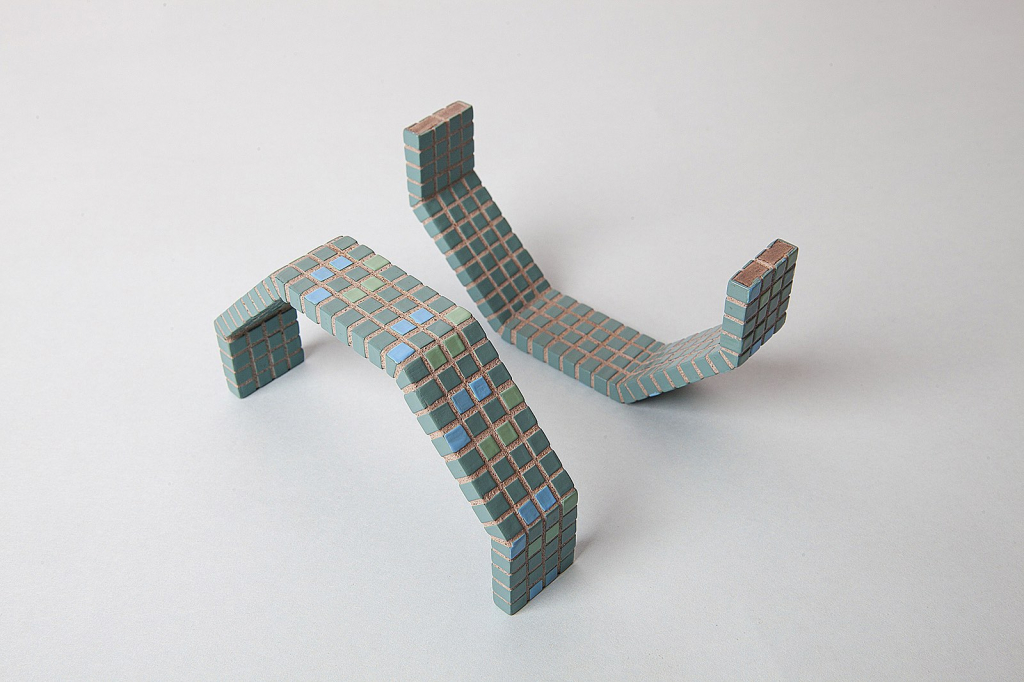The Public, the Private, the Human
Jewellery and other body adornments can be thought to be a marker of the threshold between an individual’s inner world and a public outer world. Wearing jewellery communicates identity; hence jewellery can be described as a satellite, radiating information to others, from the wearer’s personal sphere.
In the work of Jiye Yun, public spaces are reflected on to the jewellery. The sanitary tile surfaces of contemporary architecture - of schools, hospitals, swimming pools, subway- stations and millions of private or public bathrooms - are imitated and cover her pieces. Jiye Yun’s jewellery is not marking a border between a wearer’s inner world and a public outer world. Her pieces are creating an endless reflection of both worlds mirroring each other. The private space reflects the public, and the public space pervades aspects of the private.
Her work describes the everyday. It refers to the rituals and routines of people moving through the public realm. Investigating the everyday is a well-known concept within the applied arts, but in the work of Jiye Yun, the investigation is not focus on the paradigm of the profane, it is the emotional dimension of public spaces, which is examined.
How someone is feeling, is depending on the individual’s experiences with others, since human beings are confronted with public approval or disapproval on a daily basis. It might be felt as an individual experience, but the vulnerability of an individual, towards a possible rejection of others, is common for all people.
Jiye Yun’s works make aware of this fact. It projects public space onto the body of the individual, and it permits this projection to become an emotional statement about the vulnerability of each of us.
A sanitary tiled surface is a protection against the physical bodies of others, but it also can mark a defamiliarization towards the own body and its natural functions and decay. Tiles can hereby represent the concept of abjection*, which describes the experience of being confronted with a disruption of the distinction between subject and object. A tiled room can feel uncanny.
Jiye Yun’s works describe two aspects of contemporary human being’s conditions. They describe the discrepancy between the private and public realm, as well as the possible alienation towards the physical selves. Clearly these are narratives interwoven in everyday life, but it might not be the typical stories of jewellery. It therefore takes great sensitivity for the subject matter, as well as for material and form, to communicate such complex aspects of being, in the language of jewellery.
Jiye Yun has mastered this task. In her work a tiled room can feel uncanny, but also it can feel familiar, tutelary and playful.
Karen Pontoppidan
* Julia Kristeva, Power of Horror: An Essay on Abjection, Columbia University Press, 1982



